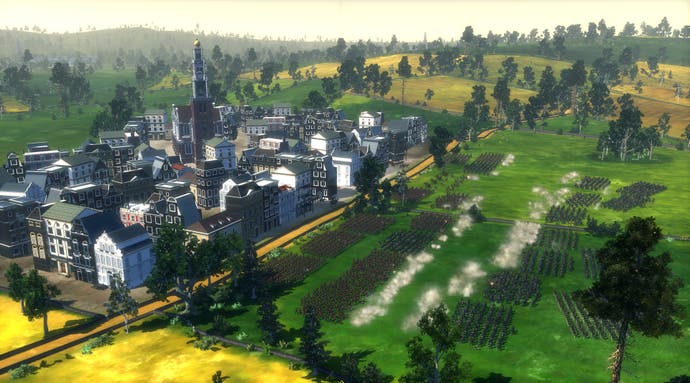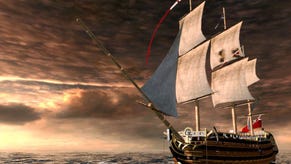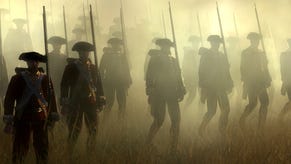Empire: Total War
Dominant.
Empire will be the first Total War game made by the series-founding Creative Assembly team since Rome four years ago, and will be twice as big. While the three years of effort poured into Empire may not be as immediately apparent as Rome's jump from 2D to 3D, there are some meaty and if not more impressive leaps made beneath the surface. And for a series that's earned 9/10 for every major instalment (including Medieval 2 - developed in Australia) that makes us ever so excited.
The Total War series can be a little off-putting at first glance. The grand idea is a marriage between a turn-based settlement-building campaign map (think Civilization) and real-time land battles (think Command & Conquer). To win, the player must dominate, by force, the largest amount of the map. The series is also steeped in history; each aspect, from units to buildings to characters, are extensively researched and recreated. And that is Total War in a nutshell. Well, that was Total War in a nutshell. This time things are slightly different.
Geographical domination still plays a key role, but win conditions have been expanded and encompass political and economical strategies, although a powerful army will still be of interest. To achieve these ends, different styles of government can be adopted, and this ruling body sets the unique goals of the faction based around its needs. Mess up, however, and rebellions and even revolutions may occur. This could be a result of over-taxing the rich while being lenient on the poor, for example, although when push comes to shove there will be a choice of joining either the loyalists or the revolutionaries. It's another step closer to producing a campaign map with the level of depth expected from a series like Civilization.
Trade is perhaps the most dramatically-altered non-battle aspect to Total War, and has been opened up on a global scale and split into three trade theatres: the Indies, the Americas, and Europe. Capturing valuable trade routes will be vital to a successful campaign, as will depriving other factions of theirs. And to achieve all this, of course, you need some of them boats. And herein lies the "third game", and possibly the most eye-catching feature of Empire: Total War: naval warfare.

The computer previously auto-resolved battles on the high seas, but this time players order the ships about as they would on dry land. Gigantic floating fortresses will slowly manoeuvre to unleash thundering broadsides, choosing either round shot ammunition to devastate the opposing boat, chain shot to snap the masts, or grapeshot to decimate the crew. Get close enough and vessels can be boarded - there's even pirate ships to capture and use as your own, or burning armada tactics to employ. But to truly master the seas is to master the weather, which will rage and sleep and keep Admirals on their toes. Flotillas must be varied and made of fast and small as well as big and large ships, just as an army needs varied troops on the ground. Clearly, there's been lots of effort invested, and we're promised as much complexity on the sea as there is on the ground. Which, of course, is not to say the rest of the game has been standing still; quite the opposite, and the changes are both broad and minute.
The broadest is the AI, which has become one entity rather than be split into a campaign-brain and a battle-brain. The effect is opposing battle generals acting according to an overarching campaign goal, which can be as subtle as not wasting effort on a strategically unimportant area, or as drastic as drawing players into dummy battles; distracting them from the real threat or forcing them to divide their attention. The battle AI itself has also been completely rewritten, and now reacts in a plan-based rather than state-based way, which prevents predicting that the computer will do A if attacked with B. Plus, these decisions adapt to suit the overall battle plan, which in turn is bossed by the overarching campaign plan. Even the generals have unique personalities that set them apart. The combined result is an AI that feels eerily human, and one that sparks battles with the element of surprise and unpredictability.






